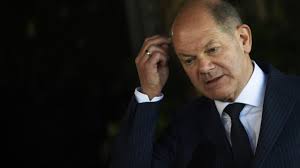BRUSSELS, June 19 (NNN-Xinhua) — The relationship between the European Union (EU) and the United Kingdom (UK) is at a crossroads, warned Maros Sefcovic, Vice-President of the European Commission in charge of inter-institutional relations and foresight, on Friday.
“We are at a crossroads, now we have a choice of which path to go down: either we are working together, with the UK abiding by its international obligations and engaging in a good faith. Or, the UK continues to take unilateral actions,” said Sefcovic, while addressing students of the College of Europe at their academic closing ceremony in Bruges, Belgium.
Sefcovic warned that a wrong choice could lead to a downward spiral, taking the attention of both parties away from what should be their main goal — building a strong strategic partnership.
Sefcovic was referring to the UK’s seemingly unwillingness “to find workable solutions” to the Northern Ireland Protocol, which is aimed at implementing a soft border on the island of Ireland and preserve the peace induced by the Good Friday Agreement.
The protocol is a “cornerstone” of the Brexit deal, emphasized Sefcovic, calling on the UK to respect its commitments.
On June 9, officials from both sides held talks in London on the Northern Ireland Protocol ahead of the Group of Seven (G7) Summit but produced no breakthroughs.
Tensions have been rising between the two sides on post-Brexit trade and a “grace period” for some border checks that will end at the end of this month.
According to reports, British Foreign Secretary Dominic Raab said last week that the implementation of the Northern Ireland Protocol had been “very lopsided” and had had “real world effects” on people in Northern Ireland. He called for the EU to show “a bit of respect.”
On the other side of the Channel, Sefcovic estimated that the EU had already shown great understanding by turning their “rules upside down and inside out,” and that they are ready to go “beyond flexibility” to make things work.
The implementation of the protocol has already led to violence, as riots erupted in Belfast in April. Loyalists and nationalists claimed that the trade agreement would create barriers between Northern Ireland and the rest of the UK.
Under the protocol, Northern Ireland will continue to apply EU customs rules at its ports, to allow goods to flow into the Republic of Ireland and the rest of the EU. This is known as the Irish sea border, a new trade border between Northern Ireland and other parts of the UK.
The Belfast Agreement, or the Good Friday Agreement, is a set of agreements signed between the British and Irish governments as well as the major political parties in Northern Ireland on Good Friday, April 10, 1998. The deal, viewed as a major political development in the Northern Ireland peace process, had helped end a period of conflict in the region. — NNN-XINHUA




